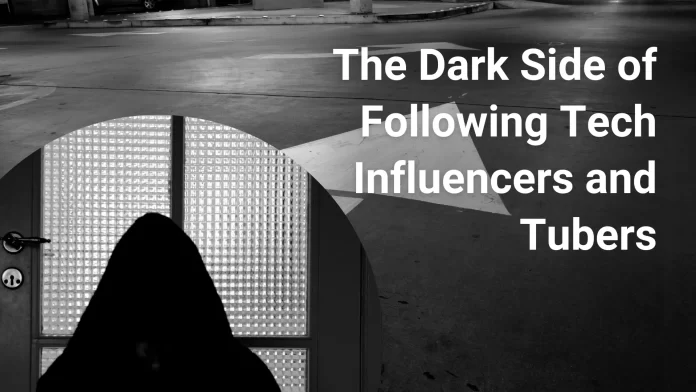1. Cultural Differences
US influencers and tech tubers often have different cultural backgrounds and perspectives than people in other countries. This can lead to a disconnect between their message and the needs and values of people in other nations. For instance, certain trends and lifestyles that may be popular in the US might not be appropriate or even legal in other countries.
The US is APPLE-dominated and mainstream Chinese and European Products are barely covered with the same intent and spirit.
A tech enthusiast cannot review all products being released in the market.
However, their influence and mainstream product coverage may discourage value-for-money products produced indigenously.
2. Biased Views
US influencers and tech tubers may have a biased view of the world that is shaped by their own experiences and beliefs.
This can lead to them promoting products or ideas that are not necessarily suitable for people in other countries.
They may also be influenced by political and economic forces that are not relevant to other nations, leading to a narrow perspective on the world.
For instance the US in tech space have been dominant but unlike Taiwan and China have produced very little entry level products and services.
Most youtubers do present these days and declare however, declaring non-biased view and still showcasing is just borderline integrity and ethical issues!
3. Misleading Information
Influencers and tech tubers are not always experts on the topics they discuss, and their information may be misleading or inaccurate. In some cases, they may promote products or services that are not backed by scientific evidence, or they may share information that is outdated or no longer relevant.
Most products are released first in the US and Europe before they make it to other parts of the world.
Some of these products are dated in terms of technological life. Vehicles where gas prices where cheap once upon a time versus costlier fuel prices. LED to OLED monitors journey that we can still see in many part of the world where it is still not cheap to procure one.
Most of the time Reviewers are bound by embargos and do not release test results in the first month of the product launch.
4. Ethical Concerns
Some influencers and tech tubers may engage in questionable practices, such as promoting products or services without disclosing their financial interests or using misleading tactics to gain more followers. This can create ethical concerns for people in other nations who may be unaware of these practices and may be influenced by them.
To this very day Pepsico products make different ads of their products Lays, Dorittos and Uncle Chips competing against each other in the same space! KFC goes worldwide and still finds that indigenous products are required in this space. A startup or local brand which charges half the price loses out to marketing wealth of the first world nations. Cisco has bought it’s competition for a very long time.
Many influencers do sponsored ads until product defects emerge but do not take an incentive to make a video on their own to promote reason for splitting nor is it taken up by news and media outlets enough compared to earlier ad money pumped!
5. Local Influencers
Instead of following international influencers and tech tubers, people in other nations may benefit more from following local influencers who are more familiar with the culture, values, and needs of their country. Local influencers can provide more relevant and accurate information, and they may be better equipped to address local issues and concerns.
For a regional influencer knowing availability and understanding value for money of the product is very important.
More often than not influencers don’t always use or test the product for an extended period before promoting.
Yes it is good to be vocal for local however tight clad influencers are currently swaying the masses into incorrect lifestyle choices.
6. Takeaway:
While foreign influencers and tech tubers can offer valuable insights and information on certain topics, it’s important to be critical of their messages and consider whether their views align with our own values and beliefs.
By being aware of these potential pitfalls, we can make more informed decisions about who we choose to follow and what advice we choose to take.






























